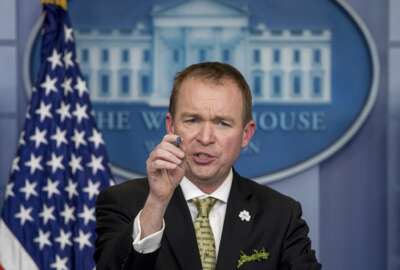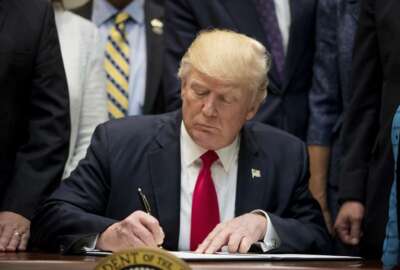

In the aftermath of the federal hiring freeze, the Veterans Affairs Department says hiring managers are free to fill most positions. But there are still thousan...
The Veterans Affairs Department lifted restrictions on new hires for the vast majority of its positions on Wednesday, becoming the first major agency to release updated guidance in the aftermath of the White House’s decision to formally end the hiring freeze that had been in place since the start of the Trump administration.
Effective immediately, hiring managers are free to fill almost all vacancies across the Veterans Benefits Administration (VBA) and the Veterans Health Administration (VHA), the department said Wednesday. The guidance for VHA, which employs almost 90 percent of VA’s 376,000 workers, applies to both medical and non-medical positions.
However, VA elected to leave a version of the freeze in place for some senior positions. Any new hires for “administrative” posts within the benefits or health administrations will need the sign-off of their acting undersecretaries, and the department’s chief of staff will have to approve the filling of any jobs within VA’s central office in Washington.
An internal department memo, obtained by the Associated Press, said about 5,000 positions would be subject to those approval processes, including 4,000 in VHA and 200 in VBA, plus more than 400 in the office of the assistant secretary for information and technology and 100 human resources positions.
Veterans Affairs Secretary David Shulkin said he had decided to leave the remaining restrictions in place in an effort to “streamline VA’s corporate structure.”
“We think that the staffing has gotten too large at our corporate offices,” he told reporters Wednesday evening during a briefing on a separate plan that would make it easier to fire VA employees. “As we look through our modernization efforts, we’re looking to take current staff and move them into new organizations like [the Accountability and Whistleblower Protection Office].”
The overall effect of Wednesday’s announcement was unclear, since the department had already issued instructions that exempted much of its workforce within a week of the Jan. 20 hiring freeze.
Under those exceptions, hospitals were already allowed to hire medical staff involved in direct patient care; some critical positions for contracting and program management were greenlighted as well. Subsequent guidance in March allowed hiring to resume for VBA staff who handle benefit claims that are “critical to medical health care and financial stability.”
However, some veterans groups worried that some of VA’s critical functions could suffer, as some staff were inappropriately categorized as “administrative” employees. Those could include, for example, workers who answer the department’s suicide hotline, said Carlos Fuentes, the legislative director for the Veterans of Foreign Wars.
Veterans organizations also worry this could be a sign of future tightening at the VA, coming after the department had previously warned it would need “hiring surges” to address a rapidly growing disability backlog. The groups have cautioned against any “privatization” efforts at the VA that could expand private care for veterans while reducing investment in the VA itself.
“It seems to be a reversal of what they have been saying, and it’s disappointing,” said Garry Augustine, executive director of Disabled American Veterans’ Washington headquarters.
Although the blanket, governmentwide hiring freeze officially concluded on Apr. 11 when the Office of Management and Budget replaced it with a directive for agencies to come up with more “surgical” plans to reduce their workforce, VA is the only major agency that’s publicly detailed what the lifting of the freeze means in practical terms.
Most other agencies, for the time being, are still operating under the guidelines and exemption procedures that have been in effect since Jan. 20, a fact that’s partially explained by the ongoing congressional impasse over the 2017 budget. The current continuing resolution that’s being used to fund government operations expires on Friday, and no federal agency has a clear picture of the amount of funding it will have available to pay employee salaries and other operating expenses over the next five months.
Copyright © 2024 Federal News Network. All rights reserved. This website is not intended for users located within the European Economic Area.
Jared Serbu is deputy editor of Federal News Network and reports on the Defense Department’s contracting, legislative, workforce and IT issues.
Follow @jserbuWFED


